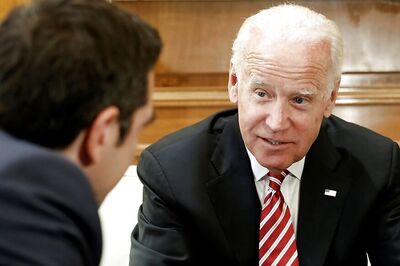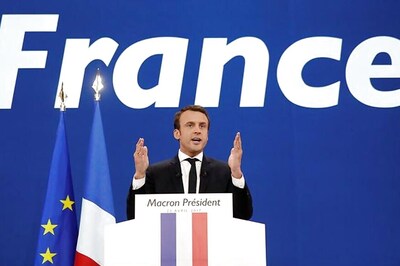
views
WASHINGTON: An agreement between Serbia and Kosovo to work on economic ties, hailed by U.S. President Donald Trump on Friday as a “major breakthrough,” reaffirmed pledges to establish highway and railway links but left movement on political normalization on hold.
Both countries – part of the former Yugoslavia – agreed, for a year, to freeze campaigns advocating for and against normalizing political ties, said U.S. officials, who nevertheless lauded a handful of economic measures as significant progress in the relationship between the two sides.
Speaking in the Oval Office flanked by the two countries’ leaders, Trump said Serbia had also committed to moving its embassy to Jerusalem, and Kosovo and Israel had agreed to normalize ties and establish diplomatic relations.
Serbian President Aleksander Vucic told reporters there were still many differences between Serbia and its former province, which declared independence in 2008, but said Friday’s agreement marked a huge step forward.
He later told Serbian media that Serbia’s agreement was with the United States, not Kosovo.
Kosovo Prime Minister Avdullah Hoti also welcomed the measures, and said they should lead to mutual recognition between the two countries, the key issue dividing them.
“Serbia and Kosovo have each committed to economic normalization,” Trump said. “By focusing on job creation and economic growth, the two countries were able to reach a major breakthrough.”
Political analysts called the agreement underwhelming and hazy, however.
“In my mind this is more of a resumption of dialogue between the two sides. That’s good for the region. But it’s not like some massive, massive breakthrough,” said Jasmin Mujanovic, a political scientist who specializes in Eastern Europe.
“It’s mostly vague. It’s not even clear on the economic stuff,” said Edward Joseph, a senior fellow with Johns Hopkins University’s School of Advanced International Study.
DEAL-MAKER
The Republican Trump, who is running for re-election in November, is seeking to play up his deal-making skills on the international stage and recently announced a pact to normalize ties between Israel and the United Arab Emirates.
Trump is trailing his Democratic rival Joe Biden, who served as vice president under then-President Barack Obama, in national opinion polls.
Friday’s events, which came after two days of talks among the leaders and senior Trump aides, was originally scheduled to take place in the White House’s Roosevelt Room, with two tables set up for the leaders to sit at. It was abruptly moved to the Oval Office, with Trump’s desk between the two tables.
The Serbian and Kosovo leaders appeared to sign separate documents, not one. Trump, meanwhile, signed letters acknowledging that the two countries would work together.
Ambassador Richard Grenell, who is serving as a special envoy on the issue but is not a U.S. government employee, said the United States was not a signatory.
Serbia would be the first European country to open an embassy to Israel in Jerusalem, and Kosovo the first with a Muslim majority. Only two countries have done that so far: the United States and Guatemala.
Israeli Prime Minister Benjamin Netanyahu welcomed the moves.
Ethnic Albanian-majority Kosovo, which is predominantly Muslim, declared its independence from Serbia in 2008 after a 1999 NATO-led bombing campaign in which the United States took part, to curb a war ignited by years of repressive Serbian rule and to stop ethnic cleansing by Belgrade.
Serbia, backed by its traditional Slavic and Orthodox Christian ally Russia, has refused to recognize Kosovo’s independence, a precondition for Belgrade’s membership in the European Union.
National security adviser Robert O’Brien told reporters that expanded economic ties, increased border crossings and mutual recognition of professional licenses could pave the way for political solutions in the future.
He said the deal would also lead to increased U.S. investment but gave no details.
Disclaimer: This post has been auto-published from an agency feed without any modifications to the text and has not been reviewed by an editor



















Comments
0 comment